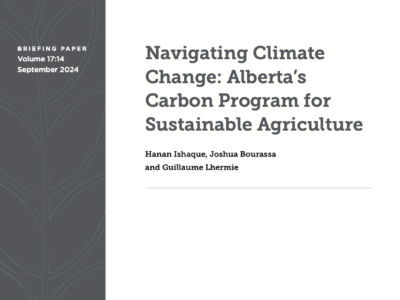



3min read

In September 2024 The Simpson Centre published the Policy Paper “Navigating Climate Change: Alberta’s Carbon Program for Sustainable Agriculture”.
We encourage everyone involved with Agriculture in Alberta to read this excellent paper.
We have thoughts, and recommendations, related to our domain of interest, cow/calf ranching:
The industry led Canadian Roundtable for Sustainable Beef (CRSB) already leads this space, already has protocols in place to assess and incentivize sustainable practice, already owns consumer engagement in beef sustainability, holds extensive industry partnerships and engagement, and are far better positioned than government to secure producer engagement.
Partnering with CRSB is the way forward.
If you approach this challenge using corporate/government/academic cost structures and engagement models, the challenge is daunting.
But if you approach the challenge from the viewpoint of the rancher, and provide tools and outcomes of compelling value to them, as Flokk is uniquely positioned to do, this is achievable.
Livestock producers cannot afford the altruism necessary to administer methane reducing feed additives without compensation.
As the study notes, current carbon pricing barely recovers the cost of administering these products, let alone purchasing them.
Methane reducing feed additives, barring the unlikely emergence of broad consumer resistance, is low hanging fruit for emissions reduction; not expensive to achieve, and no impact to consumer (or more importantly, voter) experience.
Stakeholders need to collaborate to build consensus that recognizes the realities of today and implement pragmatic and achievable incentive protocols that secure the emission reductions of this opportunity today.
Canada has a choice. We can find consensus on simple and affordable to administer protocols and tools that rapidly realize significant reductions in livestock CH4 emissions, accepting that we may be realizing only 90% of the reduction we are buying offsets for.
Or we can implement complex, redundant, and expensive to administer protocols and tools that provide absolute confidence that absolutely no reductions are being realized.